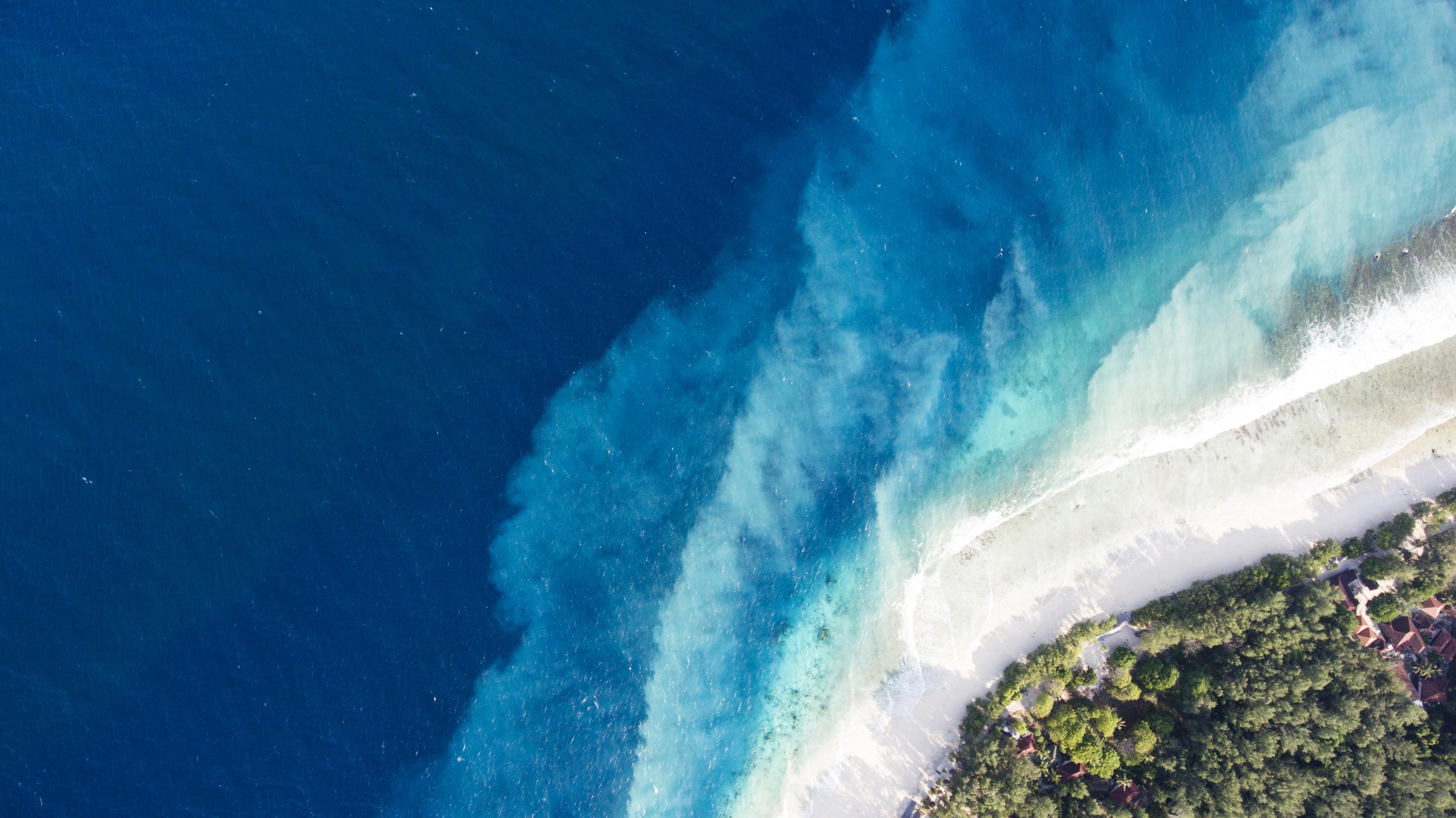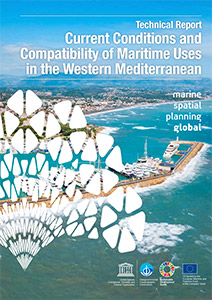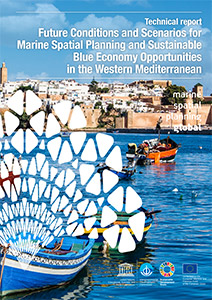MSPglobal launches key reports and storytelling tools on the current status and scenarios of maritime uses in the Western Mediterranean and Southeast Pacific
With the aim to improve cross-border and transboundary cooperation for the development of marine spatial planning (MSP) and sustainable ocean economy strategies, the MSPglobal Initiative has launched four technical reports and two storytelling tools on current and potential future conditions in the areas covered by its two pilot projects.
Successful marine management needs planners and managers who understand and work with the sea’s diversity in space and time. The new reports aim to assist the MSPglobal beneficiary countries in developing approaches, tools and actions at regional level to contribute to a coherent ecosystem-based MSP process, based on an analysis of existing conditions within the pilot project areas in the Western Mediterranean and Gulf of Guayaquil (Southeast Pacific).
More specifically, the reports focus on:
Current conditions:
- Identifying ocean governance frameworks
- Mapping information about ecological, environmental and oceanographic conditions
- Mapping human activities and uses
- Identifying current conflicts and compatibilities
Future conditions and scenarios:
Identifying possible alternative outcomes for the planning area through the development of scenarios:
- Trend scenario: current conditions continue without new planning and management interventions and sectors develop according to their past and present trends, with conflicts expected to arise in the busiest areas
- Conservationist scenario: conservation is the priority, most impacting activities are reduced and the development of new activities is based on ecological sustainability factors
- Integrated scenario: integrated planning and management approaches stimulate the application of Sustainable Blue Economy strategies at regional level and multi-uses is a priority led by sustainability objectives, including social ones
Building on this spatial analysis, MSPglobal also developed multilingual storytelling tools for the two regions. The public is invited to discover the status of current activities, pressures, conflicts and compatibilities as well as proposed scenarios. Depending on the content the user wishes to focus on, the layers related to various types of habitats and uses can be selected or hidden.
The aim of these tools is to present the data and information collected on the Western Mediterranean and Gulf of Guayaquil in a simplified and interactive way in order to turn complex concepts into notions easily understood by a wide audience.
Western Mediterranean:
The pilot project in the Western Mediterranean is being implemented in seven countries – Algeria, France, Italy, Malta, Morocco, Spain and Tunisia – an area that encompasses diverse coastal and marine ecosystems. In fact, it hosts the highest rate of the Mediterranean’s well-documented forms of life (87%) and many emblematic species of particular conservation interest. However, various environment-use and use-use conflicts threaten this rich biodiversity, such as aquaculture vs. marine protected areas or maritime traffic vs. conservation of cetaceans.
|
Technical Report on Current Conditions and Compatibility of Maritime Uses in the Western Mediterranean
|
Technical Report on Future Conditions and Scenarios for MSP and Sustainable Blue Economy Opportunities in the Western Mediterranean
|

Gulf of Guayaquil:
The pilot project in the Southeast Pacific covers a total marine area of about 39,000 km2 in the Gulf of Guayaquil between Ecuador and Peru and seeks to support binational initiatives of social, economic and environmental importance. The gulf is the largest estuary on the Pacific coast of South America, with a mixture of marine and fluvial environment and most notably mangroves. In the absence of proper multi-sectoral and cross-border planning, conflicts such as fisheries vs. maritime transport or tourism vs. oil and gas are growing.
|
Technical Report on Current Conditions and Compatibility of Maritime Uses in the Gulf of Guayaquil
|
Technical Report on Future Conditions and Scenarios for MSP and Sustainable Blue Economy Opportunities in the Gulf of Guayaquil
|

These products were developed by MSPglobal, a joint initiative between UNESCO’s Intergovernmental oceanographic Commission (IOC-UNESCO) and the European Commission’s Directorate-General for Maritime Affairs and Fisheries (DG MARE), co-funded by the European Maritime and Fisheries Fund (EMFF) of the European Union.
***
For more information, please contact:
MSPglobal Initiative:
MSPglobal.comm@unesco.org




